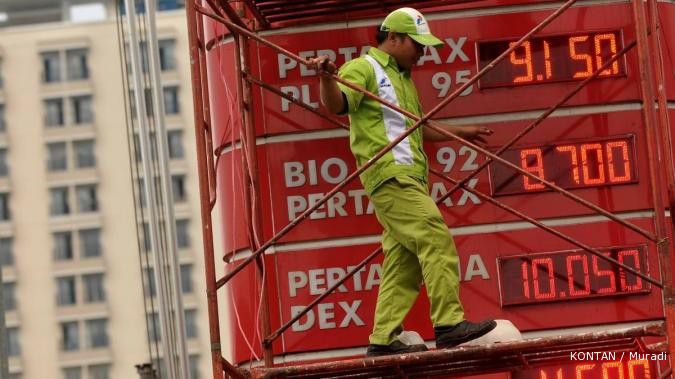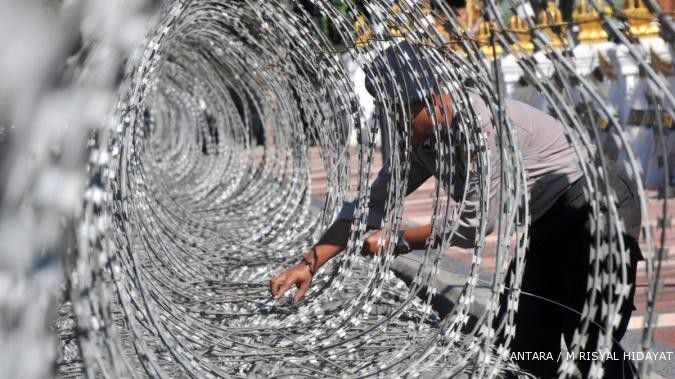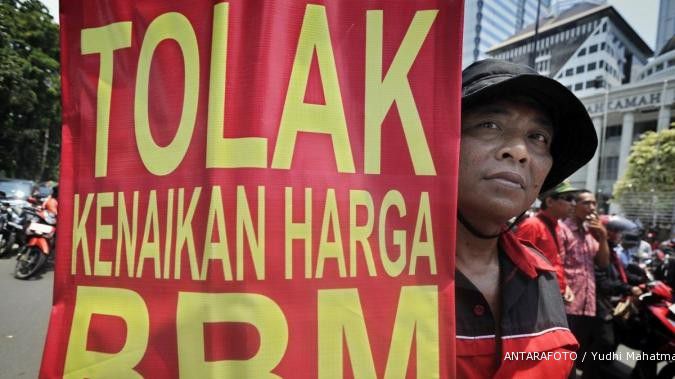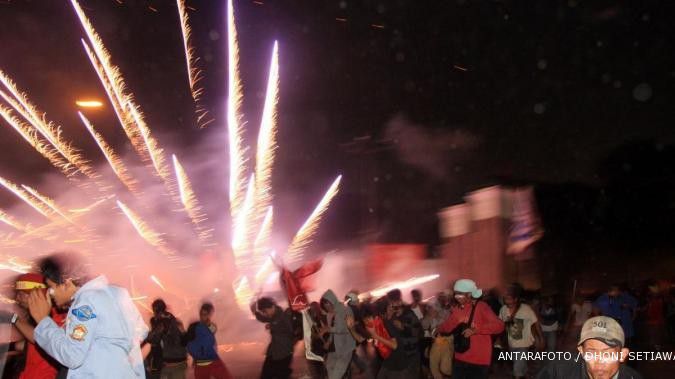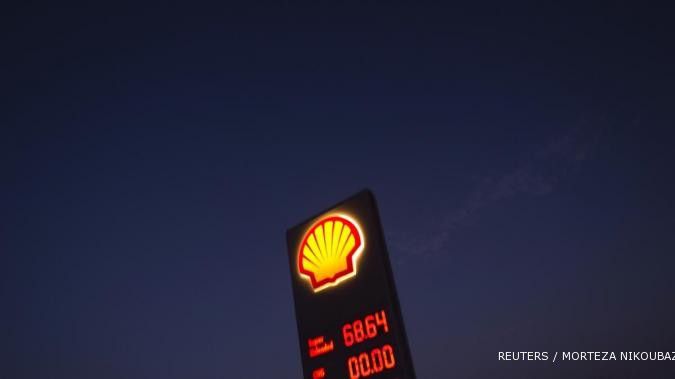JAKARTA. Implementing a proposed subsidized-fuel ban for private vehicle owners will not ease the pressures soaring crude oil prices are exerting on the state budget, Finance Minister Agus Martowardojo says.
“We believe if global fuel prices continue to rise, then we will have no other choice than to adjust subsidized-fuel prices,” Agus told reporters last week.
Agus said that any political move aimed at disrupting the government from adjusting fuel prices would affect other programs.
“If we cannot adjust fuel prices, then the budget allocation for other programs, such as social security and infrastructure development, could be delayed,” he said.
Subsidized fuel prices are currently Rp 4,500 (49 US cents) a liter, while the price of Pertamax and Pertamax Plus, both nonsubsidized fuels, stands at Rp 10,300 a liter and Rp 10,400 a liter respectively. The price disparity might encourage more people to use subsidized fuel, sending annual consumption to 47 million kiloliters.
The government has the authority to adjust subsidized-fuel prices based on the 2012 State Budget Law, recently amended by the House of Representatives.
The law stipulates that the government can adjust subsidized-fuel prices if the average Indonesia Crude Price (ICP) exceeds more than US$120.75 in a six-month period.
However, experts have said that the government would chose another option floated by the Energy and Mineral Resources Ministry, given the nationwide protests following the government’s move to raise fuel prices in March
The ministry proposed banning private vehicles from using subsidized fuel starting May 1, instead of April 1 as stipulated in the original 2012 state budget.
The proposal was stillborn, given a lack of infrastructure needed to implement the ban, such as a sufficient number of fuel-to-gas converter pump stations.
According to the Transportation Ministry, almost half of the Rp 165.2 trillion budgeted for fuel subsidies in 2011, Rp 77.9 trillion, was accounted for by private cars, much more than the Rp 4.1 trillion accounted for by public transportation vehicles, the Rp 58.8 trillion accounted for by motorcycles or the Rp 5.9 trillion accounted for by commercial vehicles.
Meanwhile, Bambang Brodjonegoro, the Finance Ministry’s acting fiscal policy chief, said that the ministry would support reviving the restriction because it might reduce subsidized fuel consumption.
However, Bambang also said that the Energy and Mineral Resources Ministry had to quickly develop fuel-to-gas conversion infrastructure to ensure that private car users had options other than buying subsidized fuel.
“The conversion will complement the restriction plan and the management of subsidized-fuel consumption will eventually become more effective,” Bambang said.
Bambang said that the Finance Ministry had not yet made any calculations about the potential savings from subsidies if the restriction went into effect in May.
“What matters now is to ensure our allocated 40 million kiloliters of subsidized-fuel consumption is not exceeded. I believe that if the plan is conducted, we will still exceed our subsidized-fuel consumption target, but will not reach the level of 47 million kiloliters,” he said. (Hans David Tampubolon/ The Jakarta Post)
Finance minister wary of fuel restriction plan
April 16, 2012, 09.48 AM
/2012/04/16/151944855.jpg)
ILUSTRASI. Chelsea vs Porto: Optimisme kuat The Blues singkirkan Dragoes di Liga Champions. REUTERS/Toby Melville
Reporter: Edy Can
| Editor: Edy Can
Latest News
-
March 04, 2026, 05.27 PM
Fitch Cuts Indonesia Credit Rating Outlook to Negative
-
March 03, 2026, 12.18 PM
Indonesia Hopes to Get MSCI Response to Capital Market Reforms Before May
-
March 02, 2026, 04.45 PM
Indonesia has Seized 5 Million Hectares of Palm Oil Plantations, Task Force Says
-
March 02, 2026, 01.10 PM
Asian Assets Slide as Mideast Strikes Spark Oil Spike, Haven Rush
-
March 02, 2026, 10.49 AM
Bank Indonesia Monitoring Market Movements in Response to Conflict in Middle East
-
February 25, 2026, 08.28 PM
Inpex to Solicit Bids for Construction of Indonesia's Abadi LNG Project in Mid-2026
-
February 24, 2026, 03.38 PM
Eni to Reach Final Investment Decision for Indonesia Gas Projects Next Month
-
February 24, 2026, 01.00 PM
Asia Stocks Try to Steady after Wall Street Selloff Sims Mood
-
February 23, 2026, 04.50 PM
Wall Street Futures and Dollar Slide on Trump Tariff Tumult
